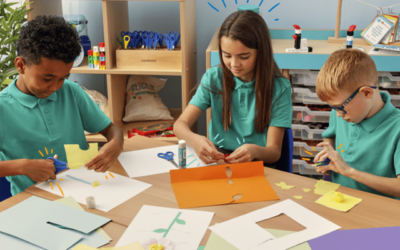The art of den building by NDNA
Do you remember building a den in the woods as a child? NDNA recognise that den building as part of nature play in the early years is great for learning and development, despite becoming less and less common.
Do you recall the challenge of creating a real structure from branches and leaves and whatever else you could drag and pile up and bind, to climb into?
Did you enjoy smoothing out a floor covering and negotiating with a friend or sibling who was going to sleep where? Discussing how you’d find, store and cook food in your new, make-believe life in the woods? Finding a hiding place for your special treasures?
The time you built a den stays with you. We bet you can even remember books you read as a child that featured a secret den. What a shame, then, that this exciting, inventive art could be dying out.
Research suggests that den building is disappearing as a childhood experience, due to the appeal of computer games and television, lack of access to natural areas and parental concerns.
So, as parents often aren’t keen on such activity, should nursery practitioners take the lead and become champions of the den? NDNA says yes, they should!
Early years professionals understand the importance of den building for children’s learning and development and have the time and space to plan in regular opportunities during the nursery day.
Children have an innate interest in creating and playing in dens, whether it’s a playhouse, a tent or simply a sheet arranged across chairs. Humans have, after all, been building homes for warmth, shelter and safety for many tens of thousands of years.
The appeal of dens to young children is that they have control of their own space, away from the demands and expectations of adults. They can also be a ‘secret’ place for discovery and socialising.
Building one has lasting effects on children, giving them a ‘can-do’ attitude and growing their confidence to try and persevere with tasks. This positive attitude supports children to become independent learners.
Some learning opportunities of nature play:
- Being imaginative, playing ‘make believe’ and creating role play situations
- Developing language skills, engaging in conversations with a friend, listening, discussing how to build the den
- Learning how to cooperate and negotiate with others, working together to build a structure
- Developing physical skills – building and constructing, spatial awareness, choosing resources
- Calculating and estimating, gaining ideas of size, space, shape and measure
- Having fun – being excited, energetic, adventurous, noisy and messy!
You don’t have to be Ray Mears to build a convincing den. Children will enjoy building and playing in naturally occurring places such as spaces under bushes and tree branches or in tents and playhouses.
Some element of construction is the best kind of activity. Having the opportunity to build their own dens allows the children the experience of dismantling the changing structure as well as assembling it. These are important aspects of the learning and understanding process. Think about the resources that you could use together to create an exciting enclosure.
As well as trees and branches, how about crates, planks and boxes? Canes, brightly-coloured fabric, carpet squares and rugs? Remember that string, rope and tape will be invaluable, as would pegs and large bulldog clips.
What will you kit your den out with? How about gathering pots, pans, tea sets, kitchen utensils, cushions and pillows, tools, picnic baskets and torches?
The possibilities are endless. Nurseries have a real opportunity to spark children’s interest. One day, fingers crossed, they will remember the amazing dens they built and pass on this wonder and magic to their own children – maybe even securing the survival of this great tradition for another generation.
A special thank you to Nicola Wardropper (NDNA Early Years Adviser) for writing this blog post. Shop our den building range now.
Related blogs
What Goes In, Must Go Out
Creating a Circular Economy in Your Nursery Author: Nick Corlett Sustainability Manager at LEYF Sustainability is more than a trend—it’s a shared responsibility, and the nursery is the perfect place to nurture these skills. Every day...
Top tips to create a SEND-Friendly Primary School Classroom
Author Lindsay Robinson Lindsay Robinson has been a primary school teacher for 23 years and is passionate about achieving the very best outcomes for children through quality first teaching and experiences. I remember receiving very little guidance during my teacher...
Celebrating being part of a Global Community
Author: Alice Sharp As a young teacher I can remember how much time and effort went into looking at the SHAP Calender. This is a calendar of festivals around the world. We had to try and ensure we celebrated anything relevant but also introduce other festivals from...


